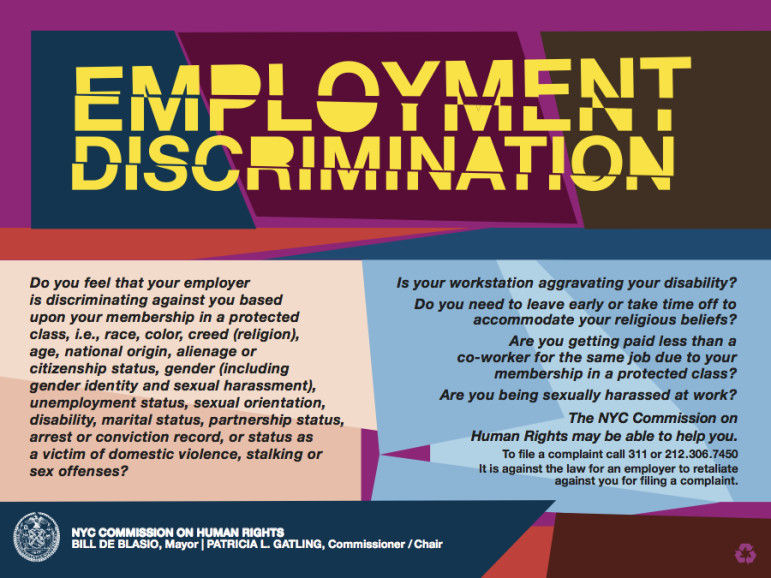
HRC
One of the Commission's public service messages.
An employer who targeted an older worker for transfer to a job the boss knew was going to be eliminated. A supervisor who winked, licked his lips and asked what an employee was going to do for him when she asked for more hours. A workplace that created a hostile environment for someone because of their faith. Last month alone, New York City’s Human Rights Commission ordered settlements in these and other cases totaling roughly $75,000 to compensate customers, applicants and workers who complained they were mistreated because of their race, gender, age or other characteristic.
The Commission doesn’t get into the news very much, but managed to make headlines in early November when Public Advocate Letitia James wrote a letter to Mayor Bill de Blasio complaining that the commissioner under then director Patricia Gatling had been timid and unproductive. De Blasio axed Gatling the next day and named a replacement, Carmelyn Malalis, a couple weeks later.
Defenders of the Commission note that after eight years of disdain from Mayor Giuliani and 12 of neglect under Mayor Bloomberg, its budget and headcount are a shadow of their former selves, according to data provided by the city’s Independent Budget Office. From a high of 223 employees in fiscal year 1991, the commission’s roster was 159 when Giuliani took office, 126 when Bloomberg came to power and 61 last year. Its budget shrank every year from 2009 through 2014 before a modest increase this current year.
Whether the tightening budgets led to a low profile or vice versa, HRC is certainly not an agency whose powers are known to most workers. But it is authorized to enforce the city’s extensive human rights law.
Among the cases decided in December 2014, the Commission:
And there were damages levied in several cases where a company expressed a preference for female employees.
Complaints can be filed here.








